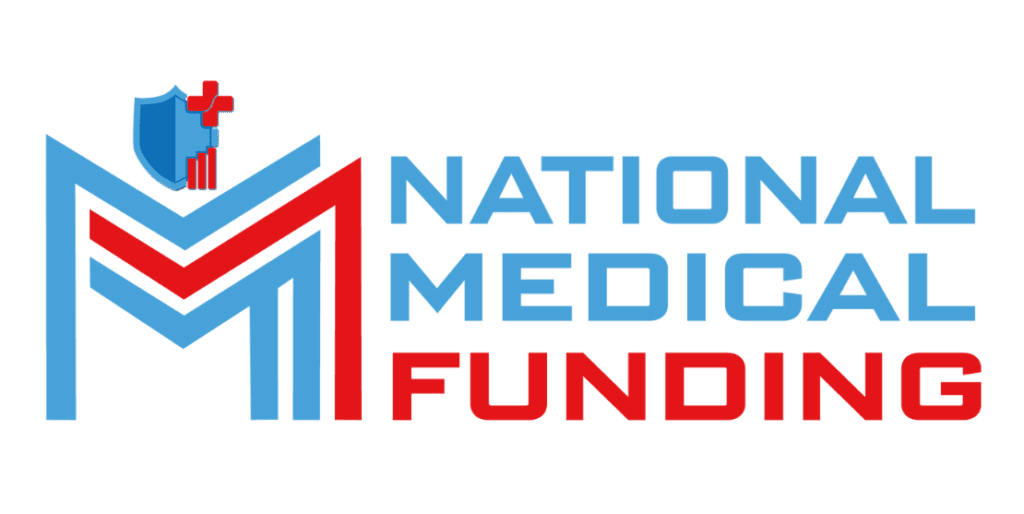
Is Juggling All Your Practice’s Debts Worth
Running a medical practice is tough enough without cons...

Saturday and Sunday – CLOSED
support@nationalmedicalfunding.com



When you’re running a busy healthcare practice, compliance isn’t just a box to check—it’s a crucial part of protecting your reputation and bottom line. With ever-changing rules and regulations, staying audit-ready takes more than guesswork. The good news? You don’t have to tackle this alone.
More practices are turning to risk-based audits to stay one step ahead, and they’re using short-term healthcare loans to fund the process. From hiring outside consultants to investing in training and software, loans can offer the secure finance your clinic needs to stay in compliance. Don’t forget to calculate loan options early using a lending calculator to stay in control.
In the past, audits were reactive—they happened after a problem surfaced. Now, practices are shifting to proactive, risk-based audits that focus on high-impact areas before issues arise.
This method helps you spot vulnerabilities in billing, coding, and documentation ahead of time. It also shows regulators that your clinic is serious about compliance. Risk-based auditing is fast becoming the gold standard in health care, and it helps practices avoid costly mistakes.
Think compliance is just about staff training? Think again. Being truly audit-ready means investing in expert consultants, legal guidance, EHR upgrades, and regular review processes. That adds up.
This is where healthcare funding solutions come in. Instead of pulling from your operating budget, use a short-term loan to cover compliance-related expenses. A lending calculator can help estimate what your repayments might look like.
Pairing financial resources with expertise is a winning move. By hiring a medical management consultant, you bring specialized insight into your practice’s processes. But these pros don’t come cheap.
That’s why it makes sense to use secure finance to fund the investment. Learn more about the benefits of combining consultants and capital in our blog “Why Practice Managers Should Pair Management Consultants with Healthcare Funding Solutions for Practice Excellence”.

Old or inefficient EHR and billing systems can lead to errors, missed codes, and red flags during audits. Upgrading these systems is vital—but the cost can be intimidating.
Use healthcare funding solutions like short-term loans to modernize your systems now. That way, your practice is well-equipped before the next audit comes around. Don’t delay tech upgrades because of budget constraints.
Just like flu season, audit season can sneak up on you. When multiple audits hit or you need emergency consulting, cash flow can get tight.
Short-term healthcare loans provide that much-needed cushion. Read how these loans help practices stay afloat during revenue dips in our blog “The Smart Practice Manager’s Guide to Using Healthcare Loans During Seasonal Revenue Swings”.
One of the best ways to stay audit-ready is to audit yourself first. Creating a monthly or quarterly internal audit schedule helps catch mistakes early.
This proactive strategy often requires investment in training, external reviews, or compliance tools—all of which can be financed using secure finance options.
Your marketing materials, website, and ads must follow HIPAA and FTC regulations. Noncompliance can lead to hefty fines.
If your team lacks expertise in this area, consider hiring a healthcare marketing consultant. Use short-term loans to fund this specialized support. See how smart funding helps with visibility and compliance in our article “Why Medical Practices Are Turning to Short-Term Healthcare Loans for Cash Flow Resilience”.
Being audit-ready isn’t a one-person job. Everyone on your team—from front desk to physicians—must understand their compliance role. But hosting training sessions, creating manuals, and tracking participation all cost time and money.
This is where calculate loan tools shine. Use a lending calculator to estimate how much a quarterly training program might cost, then find a funding option that works.
Auditors love documentation. Clear, complete, and timely records make their job easier—and make your practice look organized and compliant.
Need to fund a documentation improvement project or hire a temp to catch up on backlogs? A short-term loan helps you do it without delaying patient care or pulling from payroll.
Most practices don’t include a compliance line item in their budgets. That’s a mistake. By setting aside dedicated funds—or using a loan to build that reserve—you stay ready year-round.
Start with a lending calculator to estimate what you might need. From there, you can build a compliance strategy that’s practical and fully funded.

Audit Preparation Expense | Typical Cost | Ideal Loan Type |
EHR System Upgrade | $10,000 – $25,000 | Short-Term Tech Loan |
Compliance Consultant | $3,000 – $12,000 | Consulting Support Loan |
Staff Training Programs | $2,000 – $5,000 | Short-Term Compliance Loan |
Internal Audit Tools | $1,500 – $4,000 | Equipment/Software Loan |
Legal Reviews & Policies | $2,500 – $7,500 | Working Capital Loan |
Q1: How often should I conduct a risk-based audit?
Ideally, every quarter or after any major billing or policy change.
Q2: Are short-term loans risky for compliance funding?
Not when used strategically. They help you avoid delays that could cost more later.
Q3: Can I use a loan to hire a consultant?
Absolutely. Many practices do so to prepare for accreditation or audits.
Q4: What if I don’t know how much I need?
Use a lending calculator to help you calculate loan amounts based on projected expenses.
Risk-based audits aren’t going away—they’re becoming essential. Staying compliant means preparing ahead, investing in resources, and building a culture of accountability.
Don’t let funding gaps hold you back. Use smart healthcare funding solutions like short-term loans to keep your clinic on the right side of compliance. For more tips on funding patient-friendly spaces, check out our blog “Designing a Patient-Centered Environment with the Right Budget”.
Running a medical practice is tough enough without cons...
When it comes to funding your medical practice, not all...

Fuel your medical practice’s growth with financial solutions tailored to your needs. We’re here to support independent practitioners and group practices with strategies built for success.


Mon Fri: 8:00am – 6:00pm
Saturday: Closed
Sunday: Closed
Copyright © 2025 National Medical Funding